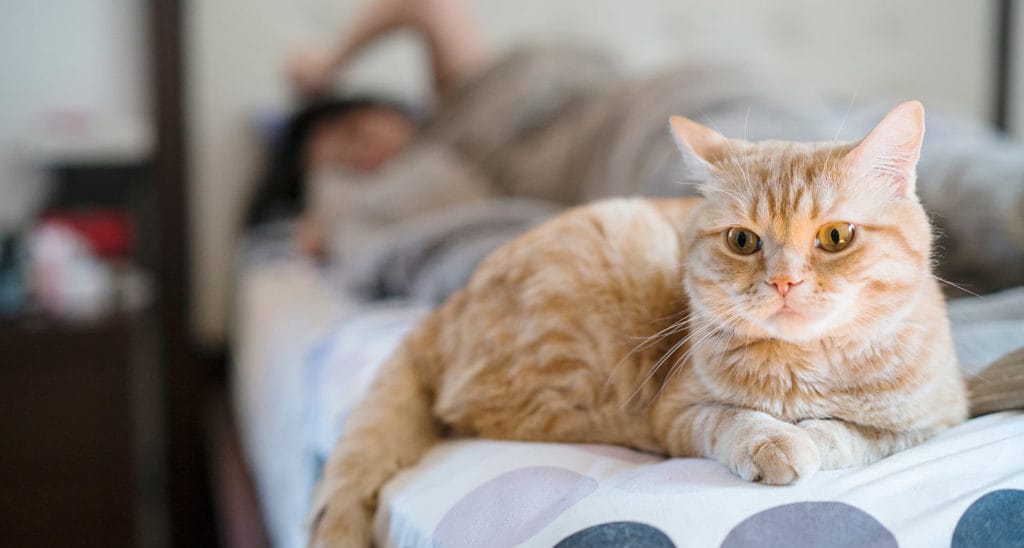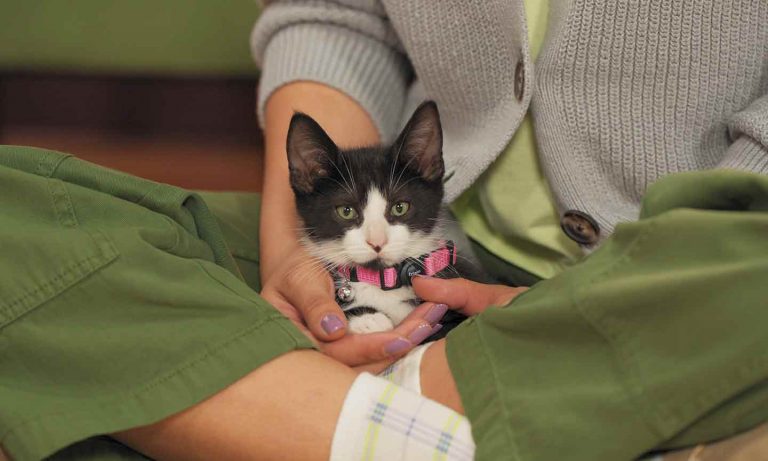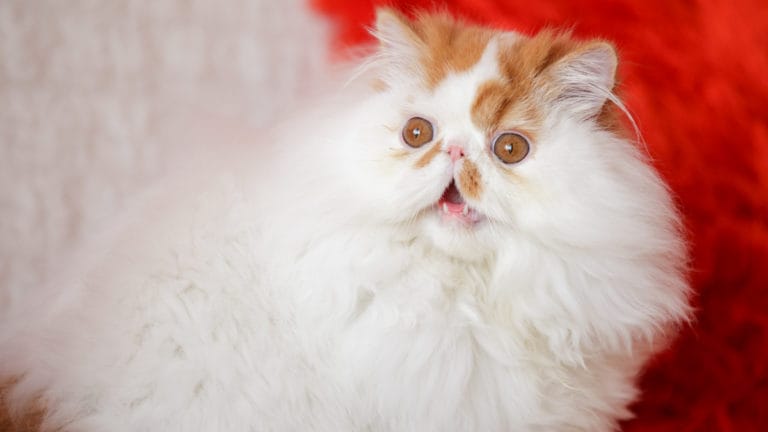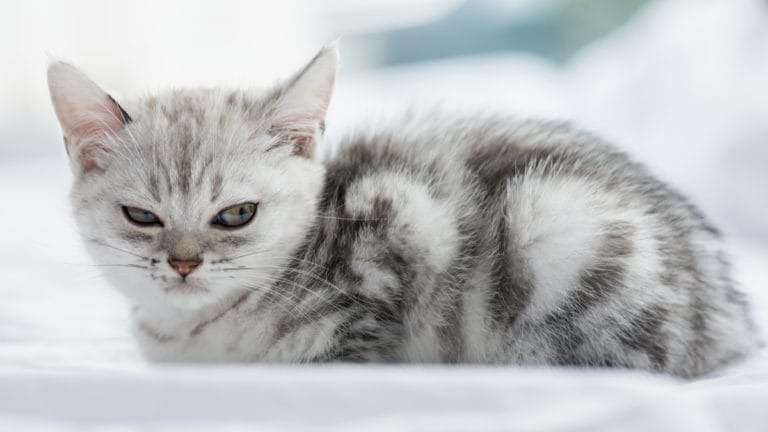“Why is my cat peeing on my bed?” I do get this question every so often, and occasional elimination outside the cat box is not an uncommon occurrence for most cat owners to experience. However, peeing on their human’s bed is definitely your cat sending you a message, and it could be a sign of a potential issue. But let me reassure you that you are not alone, and there are ways to fix the problem.
Why Is My Cat Peeing on My Bed?
Isolating just why a cat keeps peeing on their human’s bed is the first step to correcting the situation. In all cases, the cat is communicating some sort of a problem or issue, and simply ignoring their unwanted behavior will not make it go away.
Here are a few potential reasons why your cat is peeing on your bed:
Your Cat’s Heath
If your cat is peeing outside of the litter box anywhere at all, a trip to your veterinarian is in order first. Diseases, such as diabetes, feline interstitial cystitis, feline urinary track disease (FLUTD), or even a urinary tract infection, can cause this behavior.
Jealousy and the Single Cat
As in the case of Nikki and Tiger, jealousy over other cats (or even other people) being added to the household can cause a cat to urinate on the bedding, clothing or other belongings of his chosen human. Cats do this to mark their territory and re-claim what they think belongs to them. Although some behaviorists may not agree, I do believe there is a certain amount of “revenge” involved as well when a cat pees on the bed, which is why only their special human’s bed and belongings get targeted.
Stress and High Anxiety
Peeing outside of the box can also occur when cats feel stressed or anxious. Some of this came into play in Tiger’s situation; separation anxiety in particular drove Tiger to seek solace in Nikki’s belongings when she was away, soiling on them to be sure the other household cats knew these items were his. Cats dislike change, so look to recent changes in the household that could be causing your cat to feel stressed.
Litter Box Unhappiness
The litter box itself, the location of the box and/or the type of litter being used could all be causing your cat to pee elsewhere. Putting the box in a high-traffic location, not having enough boxes on all floors of your home and/or using a cat litter your cat finds unpleasant are all sure to have your cat looking for more pleasant surroundings to use instead.
How to Stop a Cat From Peeing on the Bed
Now that we know a few possible reasons for your cat’s undesirable bed-peeing behavior, here are some things you can do to help your cat break their naughty little habit of peeing on your bed.
See Your Vet
Your veterinarian will be able to pinpoint any medical issues and treat them accordingly, which in most cases will clear up the litter box avoidance. You may also need to do some of the other steps below, in case your cat’s bed peeing behavior does not stop right away.
Avoid Jealousy
To avoid jealous feelings among your cats, be sure to give all of your cats lots of love, attention and goodies. This especially goes for the original cat in the household (remember Tiger from the story above), who may need more reassurance and love while the cat (or person) who is new to the household is still upsetting them.
Find the Stressors
If your cat seems to be stressed or anxious, finding the cause of the stress will enable you to help them through those feelings. Is there a dog barking outside? Is a new outdoor cat tormenting them? Have you changed your schedule, gone out of town or just haven’t been home as much as usual? Cats like routine, and any household changes are likely to cause most cats some amount of stress and behavior issues, like peeing on the bed.
Make the No-Pee Zones Unattractive
While you are getting a handle on why your cat is peeing on your bed or other off-limited places, making the no-pee zones unattractive will help him break the habit of “going” there. Use of a cat-specific enzyme cleaner, such as Nature’s Miracle Just For Cats Oxy Cat Stain & Odor Remover, to remove any traces your cat may look for so that they can return to the same spot. Also use of a sound-producing scat mat or motion-triggered air spray repellent will make these places unpleasant for your cat to visit.
Use Calming Products
If your cat appears to be high strung, calming aids, such as a Feliway MultiCat 30 Day Starter Kit Plug-In Diffuser & Refill, or calming treats like NaturVet Quiet Moments Calming Aid Plus Melatonin Cat Soft Chews, may come in handy. I, myself, have a cat who likes to pee against walls when he becomes stressed or overstimulated. Since I started using the Feliway Plug, he has virtually stopped this behavior.
Make the Litter Box Likeable
Help your cat to like their litter box. If your cat does not like where the litter box is located, the size of said box, the type of litter inside of it, or it’s state of cleanliness, they are more likely to find an alternate place to “go.”
If you are too busy to scoop daily, I would suggest the use of a good automatic scooping litter pan, like the PetSafe Simply Clean Automatic Litter Box. It’s also important to put the box in a quiet place away from where Fido sleeps or the kids play. If your cat is still reluctant to use it, a sprinkling of Dr. Elsey’s Precious Cat Ultra Litter Attractant might do the trick.
Once you help your cat to become the cool cat they used to be, before started peeing on your bed, you two will once again be snuggling together high and dry at bedtime!
Need tips for cleaning up after your kitty? Find out how to get rid of cat pee smell.
Share:















